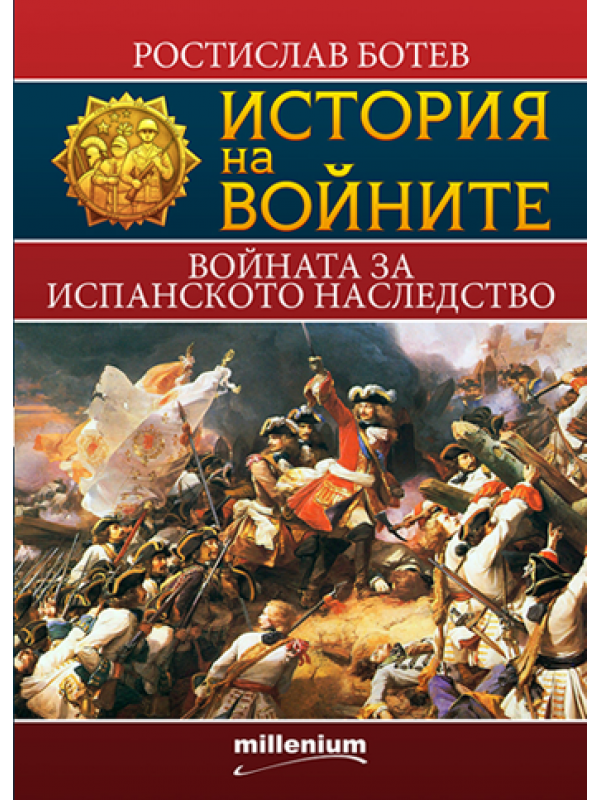Shopping Cart
0 item(s) - 0.00лв
The War of the Spanish Succession
The War of the Spanish Successiont (History of Wars 11)
Category: Modern history; Weapons and warfare
Войната за испанското наследство
Language: Bulgarian
The War of the Spanish Succession (1701—1714) is a military conflict that arose out of the disputed succession to the throne of Spain following the death of the childless Charles II, the last of the Spanish Habsburgs. In an effort to regulate the impending succession, to which there were three principal claimants — England, the Dutch Republic and France — had in October 1698 signed the First Treaty of Partition, agreeing that on the death of Charles II, Prince Joseph Ferdinand, son of the elector of Bavaria, should inherit Spain, the Spanish Netherlands, and the Spanish overseas colonies. In February 1699, however, Joseph Ferdinand died. A second treaty, signed on June 11, 1699, by England and France and in March 1700 by the Dutch Republic, awarded Spain and the Spanish Netherlands and colonies to Archduke Charles, second son of the Holy Roman emperor Leopold I, and Naples, Sicily, and other Spanish territories in Italy to France. Leopold, however, refused to sign the treaty, demanding that Charles receive all the Spanish territories intact. The Spanish grandees likewise did not recognize it, being unalterably opposed to partition. Charles II allowed himself to be convinced that only the House of Bourbon had the power to keep the Spanish possessions intact and in the autumn of 1700 he made a will bequeathing them to Philip, duc d’Anjou, grandson of Louis XIV of France. On November 1 he died and on November 24 Louis XIV proclaimed his grandson king of Spain, as Philip V, and then invaded the Spanish Netherlands. An anti-French alliance was formed (September 7, 1701) by England, the Dutch Republic and the emperor Leopold. They were later joined by Prussia, Hanover, other German states and Portugal. The electors of Bavaria and Cologne and the dukes of Mantua and Savoy allied themselves with France, although Savoy switched sides in 1703. William III of England, a strong opponent of Louis XIV, died in 1702, but the government of his successor, Queen Anne, upheld the vigorous conduct of the war. John Churchill, duke of Marlborough, played the leading role in Queen Anne’s government and on the battlefield until his fall in 1711. He was ably seconded on the battlefield by the imperial general Prince Eugene of Savoy.
Credit: Encyclopaedia Britannica
| Details | |
| Publisher | Millenium |
| Language | Bulgarian |
| Pages | 208 |
| Illustrations | b/w figures |
| Binding | paperback |
| ISBN | 978-954-515-527-7 |
| Creation date | 2020 |
| Size | 16 х 24 cm |
Write a review
Your Name:Your Review: Note: HTML is not translated!
Rating: Bad Good
Enter the code in the box below:










